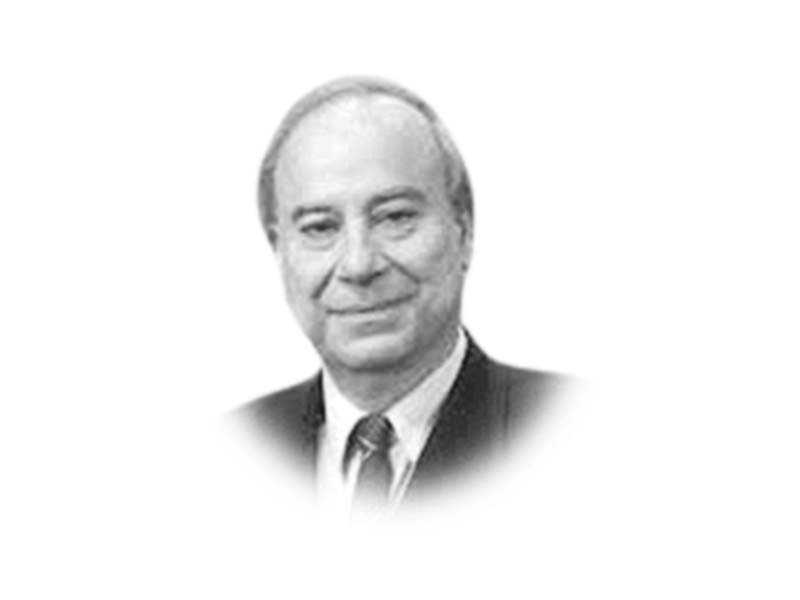
Societies that feel confident and are dynamic are able to integrate outsiders comfortably. In Scotland, I saw proof of this when I met two immigrants who held important positions. Scotland had appointed a young man with a Pakistani background to an important position in the cabinet and fielded another, a woman this time, as a Member of Parliament. In Germany, Angela Merkel took in over one million refugees when the US, traditionally hospitable to immigrants, accepted a mere 2,600 with heated debate accompanied by unpleasant abuse (a presidential candidate called Syrian refugees “rabid dogs”).
The situation in Scotland and Germany can be contrasted with that in European countries such as Greece and the nations of East Europe, where the opposite is true — they are not confident, are insecure, and unsure of themselves, thus reverting to primordial forms of identity that resist outsiders. With the economic crisis, xenophobia, terrorism and the enormous flows of refugees, you have a perfect storm in these countries.
I saw this confidence and cool in visits to both Scotland and Germany. In 2013, I visited Alex Salmond for a private lunch in the First Minister's residence in Edinburgh. Accompanying me were Harrison Akens, my assistant from Washington DC and Ibrahim Hoti, my grandson who had joined us from Pakistan. When we arrived in the taxi, I asked the driver whether he was sure this was where the First Minister lived because I did not see a single policeman outside the house or anywhere in the entire square. The driver said he was sure saying, “Not in Scotland!” and we walked toward the door. Someone was waiting inside and opened the door straightaway. We were taken upstairs to the living room which was of modest proportions and had modest furniture. A small table had been arranged for lunch. The menu was simple and there was no dessert. We were joined by two of Salmond’s staff.
Salmond himself was the perfect host — hospitable, humorous and full of anecdotes. Harrison who was proud of his Scottish ancestry was thrilled by Salmond and so was my grandson Ibrahim who was the more difficult to please as he was a teenager and not so impressed by high office or age. As Salmond entered the room, I held out my hand to shake his hand. He reached out and embraced me.
But it was Salmond's humility and humour that won over Ibrahim. In fact, when Salmond took pictures with him, he lent across with his elbow on Ibrahim's shoulder and his legs crossed in a mock vaudeville comic pose as if they were old buddies. All this was cool enough; then, as we left, Salmond said to me we will meet again, inshallah.
In Berlin, I had the occasion to call on the senior German envoy in charge of Afghanistan and Pakistan, Dr Michael Koch. The meeting had been arranged by our friend Dr Heinrich Kreft who had received me at the reception. As we walked through the impressive foreign office building, I could not help but notice the vast central space at the entrance, festooned and decorated with a football motif. It was in the days leading up to the World Cup final and there was a genuine football fever in the land. There were images of footballs and young men kicking footballs, and even the cushions to sit on in the atrium resembled the colours of a football and were designed as deflated footballs. Dr Kreft explained the German passion for football and how Germans relate their pride and identity with their fortunes as a football-playing nation.
As we were ushered into the office of Dr Koch, I was struck by its simplicity. Arsallah Khan Hoti and Dr Amineh Hoti, who were with me, could not help compare the humility and simplicity of the VIP we were meeting to Pakistan’s elite. Apart from one black and white picture, there was nothing else — no pompous-looking pictures of heads of state or the minister, no colourful calendars of the Alps, no football hero scoring goals in heroic poses while distorting his limbs, and no photographs of poised wives and scrubbed children with shiny faces which are so common in offices in the US. I was intrigued by who was in that photograph. Perhaps his father, I thought but decided it was someone else. The fact that the picture hung alone, high above us, almost as a talisman, conveyed to me that it had some deep meaning for the occupant of the office. It was Schopenhauer, the German philosopher. Wow, I thought to myself; this was German cool.
Published in The Express Tribune, February 2nd, 2016.
Like Opinion & Editorial on Facebook, follow @ETOpEd on Twitter to receive all updates on all our daily pieces.
1724760612-0/Untitled-design-(12)1724760612-0-405x300.webp)











COMMENTS (2)
Comments are moderated and generally will be posted if they are on-topic and not abusive.
For more information, please see our Comments FAQ